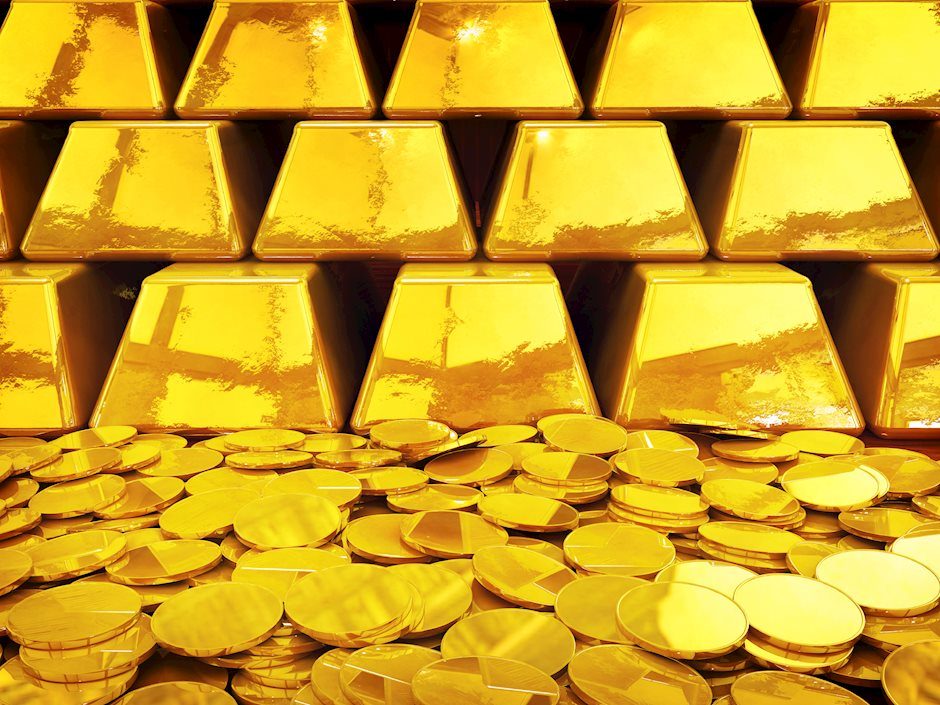The Case for Gold Keeps Getting Stronger As Negative Interest Rates Spread

The world has truly entered uncharted waters with negative interest rates spreading so far and wide.
Frank Holmes, CEO of US Global Investors, recently noted that a whopping 25% of all bonds sold globally now carry a negative yield. “Investors” are even buying some “junk” rated bonds which will repay the bearer less than purchase price upon maturity.
Now European banks, who have been absorbing the European Central Bank’s 0.4% charge to hold deposits, are throwing in the towel and getting ready to pass those charges on to clients.
Wealthy depositors at the Swiss bank UBS will soon start paying the bank 3/4 percent to hold cash balances above 2 million Swiss francs.
Some of those clients may turn to physical gold. For starters, the 0.75% negative interest rate to hold cash is roughly double the cost of storing $2 million in gold bullion.
And holding gold in allocated storage means investors don’t have to rely on an institution like UBS as their counterparty.
The Swiss firm, like other major European banks including Deutsche Bank, is troubled. It has legal liabilities, including a $5 billion fine recently imposed for assisting clients in tax evasion.
The bank’s share price is back at the lows seen during the 2008 Financial Crisis. The Financial Times observed wealthy clients leaving UBS early in the year.
At this point, investors are wondering if UBS will survive. Yet remaining wealthy clients will be asked to pay the struggling bank for safeguarding large deposits. The UBS customer exodus could soon pick up speed.
There is something both broken and ominous about the spread of negative interest rates. In a healthy economy, lenders do not pay borrowers to take their money. And depositors do not pay their bank. Both scenarios are unnatural and unprecedented.
Central bankers, in all of their wisdom, are determined to force people with capital to deploy it. They want people to spend, to make capital investments, to continue buying real estate and stocks despite extraordinarily high valuations.
The trouble is that many investors are not seeing growth and opportunities for investment. Instead they seek safe haven. They buy more and more bonds with negative yields and they hold cash in the bank, despite the fact that deposits have earned nothing for years.
Meanwhile, perpetual inflation exacts its own toll on the purchasing power of all this capital.
To calculate the real cost of holding negative yielding bonds and deposits, the rate of inflation must be added. In Europe, consumer prices have been rising at a little over 1.5% per year. The true cost of holding large balances at UBS will soon exceed 2.25% annually.
First, zero interest rates failed. Then moving the rate for deposits to negative 0.4% failed as reluctant retail banks were slow to pass the cost along to their clients.
Now these banks are starting to fall in line. They have little choice as the ECB signals its intention to keep pushing, forcing rates even more deeply negative in the months ahead. Yet there is little reason to expect the central banker’s gambit to succeed this time.
If the wealthy did not find great opportunities everywhere for their capital when it yielded nothing, they aren’t likely to suddenly find them now that central bankers are turning the screws on them another crank.
Central bankers may convince wealthy people to pull cash from the banks, but they aren’t necessarily going to go on the desired spending spree. Our bet is that, instead, they will seek other safe havens, including precious metals.
To receive free commentary and analysis on the gold and silver markets, click here to be added to the Money Metals news service.
Author

Clint Siegner
Money Metals Exchange
Clint Siegner is a Director at Money Metals Exchange, the national precious metals company named 2015 "Dealer of the Year" in the United States by an independent global ratings group.

















